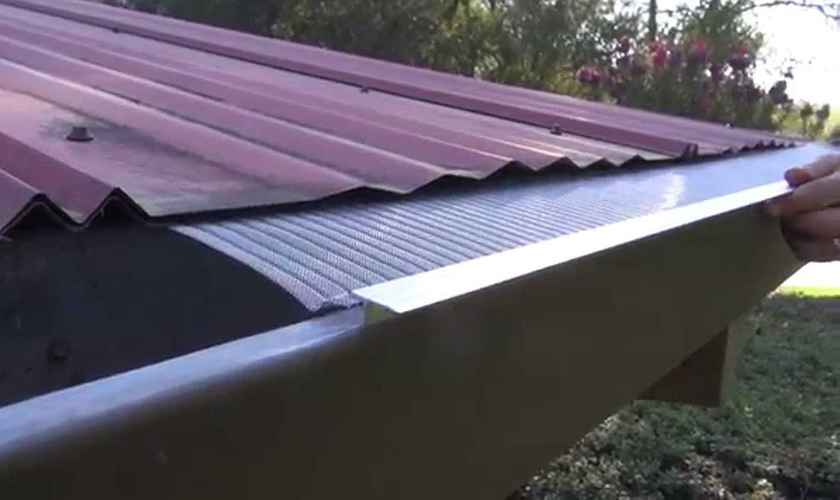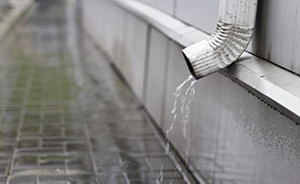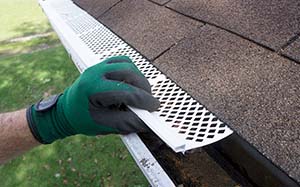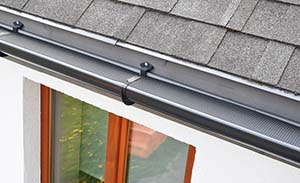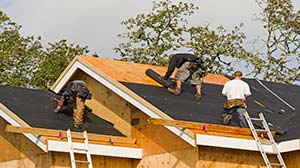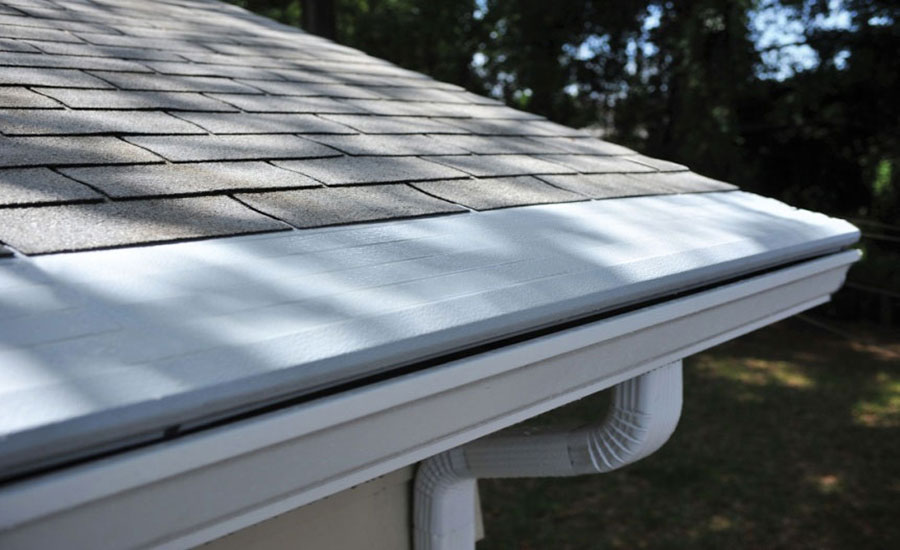
More homeowners are becoming environmentally conscious about water usage and waste. There are more conversations about gutter filters, guards, hoods, and helmets—which can get confusing.
These devices prevent debris and dirt from getting into the gutters and downspout drainage system and prevent clogging. The average homeowner has to choose from a wide set of options and decide which device better suits their purpose: the gutter guard or downspout filter.
Downspouts and gutter guards differ in the way they are applied. A downspout filter is a better system for two reasons:
- The gutter collects more rainwater, so the downspout filter collects and directs more water down the collection point.
- A downspout filter also removes finer debris, ensuring you collect cleaner water.
Let’s get down to what gives them an edge over the other.
Benefits Of Gutter Guards
Recommended Reading: Are Gutter Guards Worth It or a Waste of Money? We Ask the Pros
Keep Dirt And Debris Away From The Gutter And Drainage System
Gutter guards prevent debris, dirt, and leaves from building up in the gutters and clogging the system. Additionally, they ensure the rainwater you’re collecting is free from large debris such as leaves, sticks, or dead animals.
Reduces Time And Money Spent On Maintenance
Gutter guards prevent the accumulation of dirt and debris in the gutters. You save gutter cleaning costs and frequency. Debris can get stuck in parts of the gutter that may be difficult to reach without taking down the whole system. However, you still have to clean out the gutter, although you’d do it only twice a year.
Prevent Animal And Pest Infestations
Birds, rodents, and insects can nest in your gutter and block it. These animals’ droppings can also get to your rainwater reservoir and contaminate it. Gutter guards act as a physical barrier and prevent these animals and their droppings from reaching the gutter. Gutter guards also prevent stagnant water from sitting in your gutters, making it an unattractive breeding ground for animals and birds.
Controls Ice Dam Formation And Gutter Freezing
Gutters with no guards will accumulate water that freezes during the winter and form ice dams. Ice dams damage your roof and house structure. Installing gutter guards prevents the debris that causes water clogging. Otherwise, the clogging would lead to stagnant water freezing and ice dam formation. Gutter guards help to extend the gutter and roof lifespan.
Prevents Water Damage
In the summer, gutter guards will prevent water from dripping on the sides of the house and destroy your walls’ structural integrity. Clogged gutters collect water, break down, and form holes where the water leaks from. Water damage can also support mold and mildew breeding, making it a health concern.
Protect The House Against The Likelihood Of Fires
If you stay in an area prone to bushfires, gutter guards will give additional protection against exterior house fires. When a bush fire erupts, the embers can come into contact with the dry foliage in your gutters and worsen the fire in the house. Gutter guards prevent dry foliage from accumulating in the gutters and reduce the risk of igniting and spreading fire to your home.
Benefits Of Downspout Filters
Prevents Debris From Clogging Your Downspout System
The downspout filter prevents debris and dirt from going further into the drainage system. If you already have a gutter guard, it acts as a secondary filter and removes the finer dirt and contaminants that may have passed through it. Unlike gutters, clogged downspouts or downpipes are harder to clean. Downspout filters help to prevent large debris from getting stuck in the pipes.
Improves Water Flow Rates
Installing a downspout filter can increase the water flow rate through the downspout and into your water tank because it prevents them from blocking. As a result, it will help fill up your tank more quickly, and you will also have cleaner water since it has less debris and contaminants.
Prevents Water Pooling And Ground Saturation
The downspout filter diverts water away from the foundation and basement by preventing the collection of dirt and debris. Water flooding can compromise the integrity of your foundation and basement.
Minimal Installation And Maintenance Costs
Most downspout filters are easy to install without the help of a professional. Remove a small section of the downspout to fit the downspout filter and a drill to connect the filter. Since the downspout filter is usually close to the ground and within reach, you can quickly empty the basket during maintenance.
Why Gutter Guards Are Bad
Gutter guards are bad and ineffective if they are not properly installed. Also, many homeowners hesitate to buy one because of the following reasons:
- Gutter guards are not 100% effective in filtering out smaller debris such as seeds, pine needles, and smaller leaves. Over time, the fine debris accumulates in the gutter system and eventually blocks water from flowing through.
- Gutter guards only slow down gutter blockage but do not prevent it.
- There are no maintenance-free gutter guards. The gutter guards require regular cleaning to remove the accumulated dirt and debris over time. Without cleaning the gutter guards, they will put too much strain on the roof and cause it to collapse.
- Gutter guards can void your roof’s warranty if the installation process wrecks the placement of your roof shingles.
- Gutter guards have limited visibility. You might not see the growth of moss and algae. Heavy algae and moss growth can weaken and collapse the underlying support structure.
Are Downspout Filters Better?
Downspout filters are better because they get debris-free clean water away from the house’s structure and into your collection tanks.
The biggest benefit of downspout filters is installing them on top of the downspout or at the bottom. Both installations will give you double filtration since the filter keeps out large debris first and then captures finer debris in the inner layer.
The slip and slide installation method makes it a quick job for the DIY enthusiast. The best part is that you can use it with a gutter guard or on its own with an open gutter. However, it is recommended that you use it with a gutter guard to make sure you clean it less frequently.
What Is The Best Leaf Filter For Gutters?
The best leaf filter is made with micro mesh that uses surface tension to ensure tiny foliage stays out of the gutter and only water goes through.
Leaf filters for gutters are designed to take in more water and keep out the finest debris. The pores are 257 microns fine. Add that to the angled build, and you have a sustainable system that sweeps off debris on the upper layer and ensures water constantly flows through the mesh pores.
The construction using durable uPVC and stainless steel gives it an edge over other protection systems such as foam and brush guards. It gives you a system that will last longer, perform better in extreme weather conditions, and help you reduce your maintenance frequency.
How Good Is LeafFilter Gutter Protection?
What sets the LeafFilter gutter system apart from other gutter filter brands is its efficiency due to its three-piece system. The system prevents your gutters from blockage by only allowing water to flow through. The LeafFilter has tiny pores that prevent even the smallest of debris, such as roof shingles. Its filtering quality allows for very minimal gutter cleaning over a long period.
The LeafFilter gutter protection also has an uPVC frame that does not easily warp or deteriorate from corrosion.
What Is The Average Cost Of LeafFilter Gutter Guards?
LeafFilter gutter guards are among the most pricey gutter guards in the market, costing between $17 to $40 per linear foot, including materials and labor.
That’s a $3400-$8000 investment to get clear debris-free water for a 200-square foot house. It’s a good thing it comes with a lifetime warranty.
Conclusion
Both downspout filters and gutter guards prevent clogging of the gutter system by removing debris and dirt from the gutter. For more efficiency, it is best to install both devices.
If you find yourself at a crossroads regarding cost, professional installation, and efficiency, call a licensed home inspector with industry knowledge to take you through the best options.


